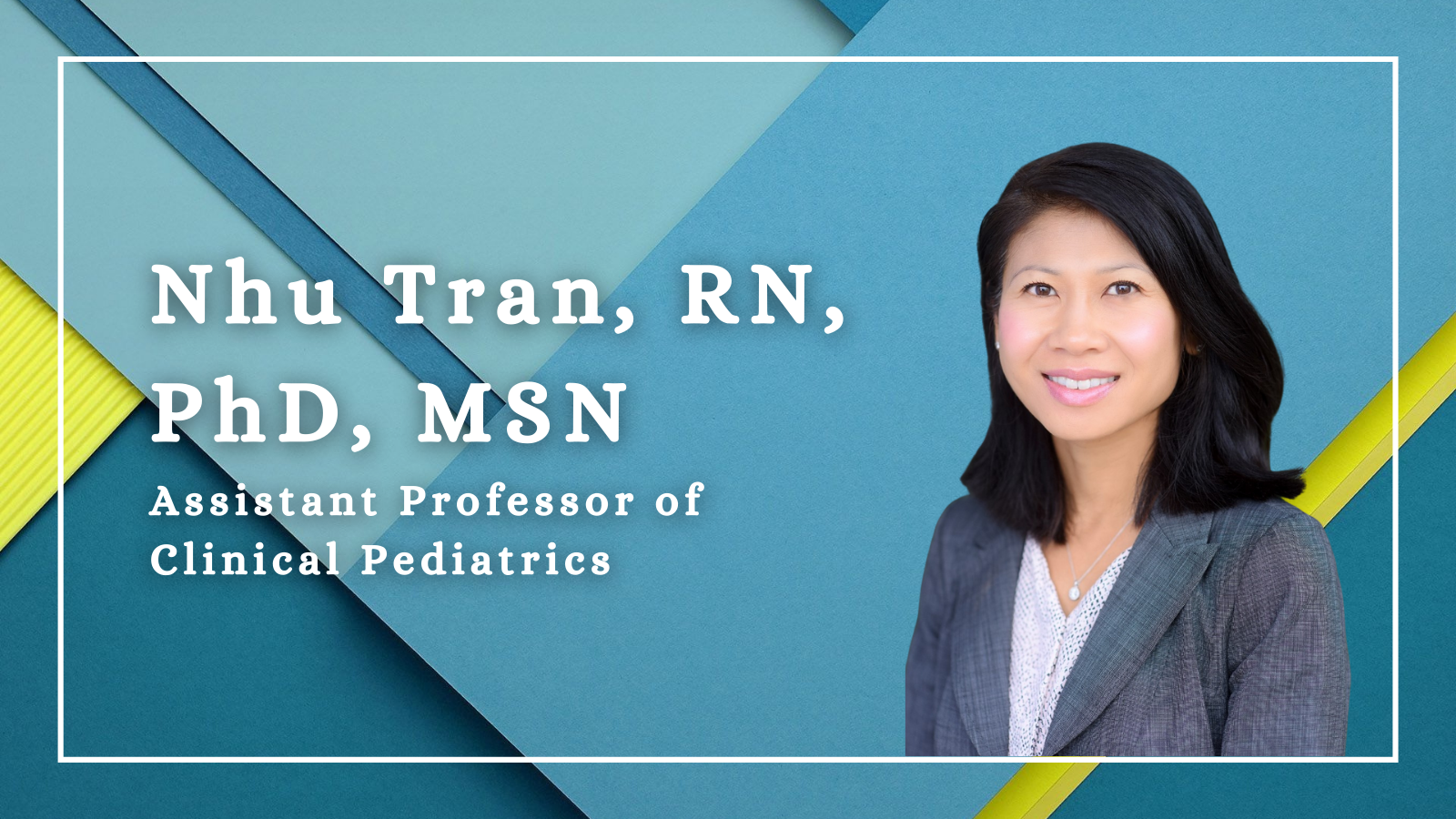SC CTSI KL2 Scholar awarded K23 grant to examine blood flow and development among children with heart defects

We sat down (virtually!) with Dr. Nhu Tran, a recipient of the SC CTSI Mentored Career Development in Clinical and Translational Science award. We hear about her new K23 grant from the National Institute of Nursing Research, within the National Institutes of Health, and what she hopes to learn. Congratulations to Dr. Tran on this great accomplishment!
1. In layperson’s terms, tell us a little about your grant and the work you have proposed.
The K23 grant is an extension of my previous work with cardiac research, however, I’m expanding my work to the toddler age group. I aim to understand the relationship between brain blood flow regulation and developmental delays in infants and toddlers born with and without heart defects.
2. What got you interested in this topic initially?
During my time as a research coordinator in the Heart Institute at Children’s Hospital Los Angeles, I served many children in the outpatient clinic with developmental delay related to their cardiac diagnosis and necessary heart surgery. I wanted to find out why this occurred and how it could be mitigated.
3. What do you hope to learn as part of this grant?
I am honored to receive this grant funding and I hope to further my knowledge and understanding of: 1) advanced cardiac and cerebral physiology to understand the mechanism of brain injury and developmental delay, 2) advanced signal processing applied to an invasive measure of cerebral autoregulation, 3) analyses of time series data, waveforms, and complex, multilevel, time-dependent models, 4) assessment of cognitive, language, motor, adaptive, and psychosocial development in 9 and 18-month old infants, 5) as well as enhance the speed, logic, and clarity of my writing.
4. What things have been challenging when it comes to conducting your research?
An obstacle I confronted was missing the opportunities for recruiting and data collection during the COVID-19 pandemic. I was, however, able to publish findings of the effects of the current pandemic on my research project. Another challenge to the project has been recruiting experienced research associates. I have limited funding for the salary of this position and thus it limits the pool to newer candidates.
5. What have been rewarding aspects to conducting your research?
It has been rewarding to see the study participants grow and develop in spite of a potentially life-limiting cardiac birth defect. It is also gratifying to connect families with our high-risk infant follow up clinic or regional center to assist their families in mitigating developmental delays in their vulnerable children.
"We are very excited and proud of Dr. Nhu Tran, who seamlessly transitioned as an SC CTSI KL2 Scholar to a K23 awardee. For this, she harnessed three important strengths: her relentless commitment to improving the health of children with developmental delays due to congenital heart disease, her love and dedication to learning and meeting each planned milestone of her research career development plan, and her skills to overcome barriers to her career advancement. Most importantly, Dr. Tran is generous, thoughtful, and kind and we were very lucky to have her in the program."
-Cecilia Patino-Sutton, MD, MEd, PhD
6. What does this grant award mean to you and your career?
The K23 grant is instrumental to my career advancement because it will hone my skillsets, and methodologies required to be an independently funded investigator. The award also validates my research since other seasoned researchers deemed my project worthy of NIH funding.
7. How has the MCD KL2 program contributed to your success?
The MCD KL2 was essential to my success, as it contributed to the framework of knowledge and skills I obtained during my PhD program.
8. Do you have a mentor? If so, how has this person helped you?
I have a team of mentors and my primary mentor is Dr. Brad Peterson. Dr. Peterson has been immensely supportive of my grant writing and manuscript composition skills. The rest of the team consists of experts in cardiology (Dr. John Wood), cerebral autoregulation (Dr. Ken Brady), instrumentation (Dr. Matt Brozage), statistics (Dr. Mary-Lynn Brecht), infant and toddler development (Drs. Sharon O’Neil and Marie Poulsen), neurodevelopment specific to congenital heart defects (Drs. Kathleen Mussatto and Ashok Panigrahy), and nurse-faculty career (Dr. Karen Gylys). They have all been instrumental to my progress, training, and career development.



